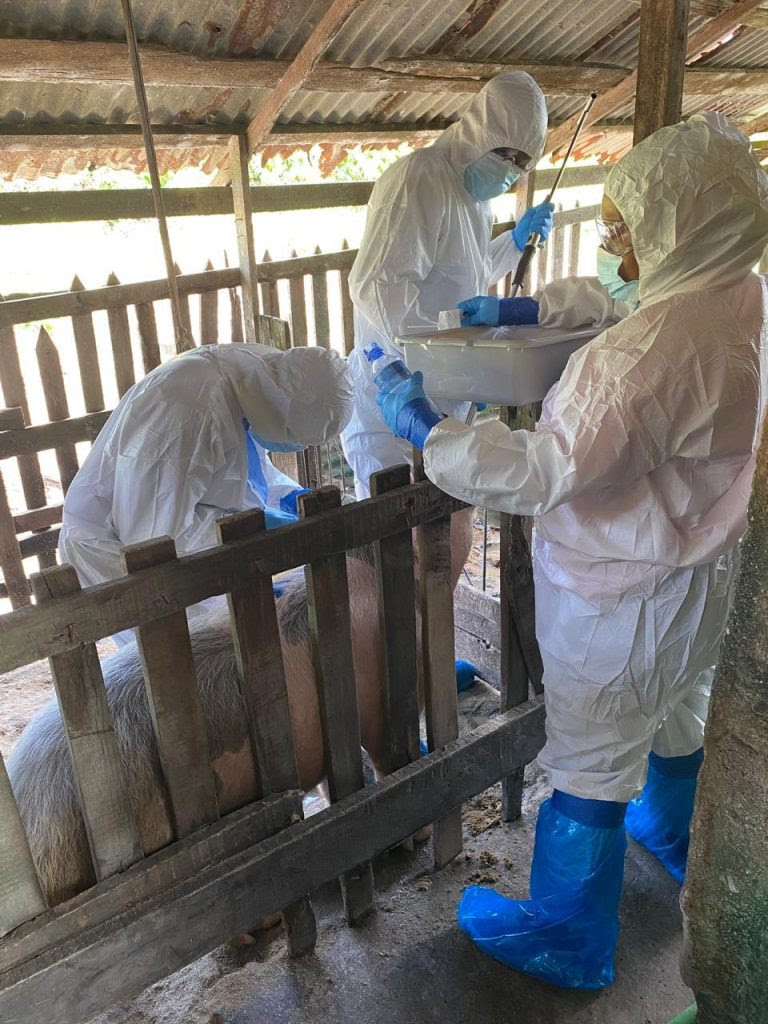Guyana has been officially declared free of African Swine Fever (ASF) following comprehensive testing conducted in 2025, while neighboring Suriname has initiated a nationwide survey to assess the disease’s potential threat. Agriculture Minister Zulfikar Mustapha confirmed the results, stating that data from national tests conducted in the first half of the year were submitted to international organizations for validation. ASF, a highly contagious viral disease affecting both domestic and wild pigs, poses significant risks to the agricultural sector due to its rapid spread and high mortality rate. To bolster its defenses, Guyana has equipped its Livestock Development Association’s laboratory with advanced test kits and established partnerships with reference centers in the United States and Brazil. Additionally, the country has created a serum bank for future reference and enhanced surveillance at all ports of entry. The Ministry of Agriculture has also prioritized staff training and capacity-building initiatives in collaboration with the U.S. Department of Agriculture and the International Institute for Cooperation in Agriculture. Meanwhile, Suriname has launched a pilot survey to map ASF risks, collecting 100 blood samples from pigs across several districts for overseas analysis. This effort is part of a broader USDA-funded project aimed at strengthening ASF surveillance and response capabilities in the Caribbean, Central America, and the Andean region. The reintroduction of ASF to the Americas since 2021, coupled with its resurgence in Europe, Asia, and Africa, highlights the urgent need for improved preparedness and management strategies.
